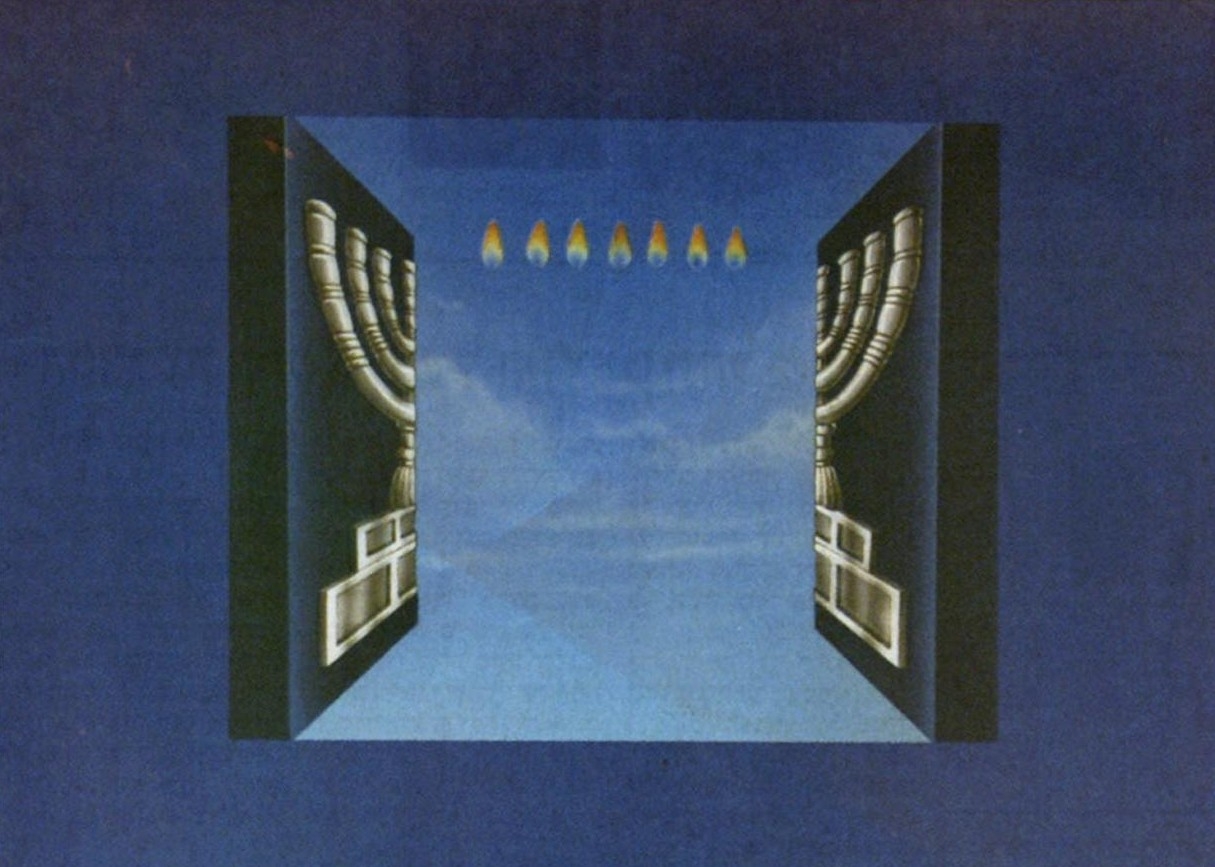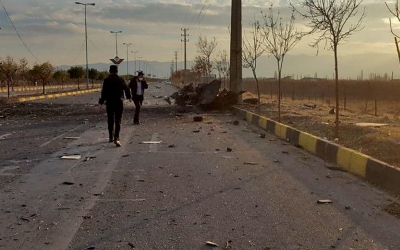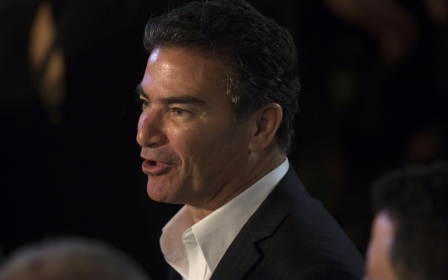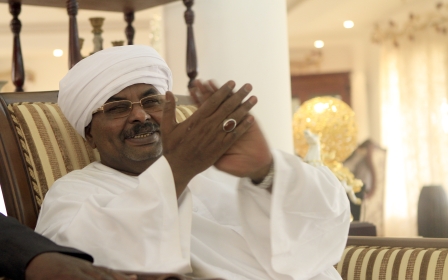Meet the man Netanyahu has picked to lead Israel’s Mossad

Benjamin Netanyahu’s decision to appoint a man for now only known as “D” to be the 13th director of Mossad comes at a very crucial and dramatic moment: namely the forthcoming changing of guard at the White House.
His full name will be published soon, once officially confirmed by a review board led by a former Supreme Court Judge Eliezer Goldberg and the cabinet.
As the current deputy head of Israel's spy agency, he will replace the outgoing chief Yossi Cohen, who will leave office in June 2021 after serving for five and half years.
President-elect Joe Biden and his team have expressed their hope to come to understandings with Iran that would lead to lifting the sanctions and return to the original nuclear deal signed in July 2015 between the six major powers and Tehran.
Now D will have a difficult mission: to provide the prime minister with precise intelligence and a correct picture of reality, even if this displeases him
In 2018, outgoing President Donald Trump withdrew his county from the deal and imposed harsher and more crippling sanctions on the Islamic Republic.
New MEE newsletter: Jerusalem Dispatch
Sign up to get the latest insights and analysis on Israel-Palestine, alongside Turkey Unpacked and other MEE newsletters
In his move Trump was encouraged, even pushed, by Netanyahu and Cohen, who had opposed the deal from the outset during the previous Barack Obama administration, under which Biden was vice president. Netanyahu and Cohen lobbied against the deal and plotted with the Republican Congress against Obama.
Now D will have a difficult mission: to provide the prime minister with precise intelligence and a correct picture of reality, even if this displeases him. D’s ultimate test will be to show whether he is made of sterner stuff, to stand up to Netanyahu and prove his determination and professionalism to challenge the prime minister if necessary.
A reformer
The decision to appoint the deputy Mossad head was expected, and it’s a reasonable choice.
There were three top contenders in the race to replace Cohen. Along with D, there was another person known as D, and someone identified as A. All three came from the same background, more or less.
They served in the Israeli army as junior officers, were discharged, and after a few years recruited by Mossad in operational units but allocated for different tasks.
D is 56 years old. He did his military service in Sayeret Matkal, the prestigious and elite special operations unit in charge of reconnaissance and installing intelligence equipment behind enemy lines.
Thirty years ago, he joined Mossad, and after finishing his 18 months basic training as a case officer he joined the “Tzomet” (Hebrew for “Junction”) division, which is responsible for locating, identifying, recruiting and operating agents.
He had been there since, except for a short stint of two years as the deputy commander of Keshet (Bow), the division responsible for surveillance and infiltrations.
Senior Mossad officials describe D as a reformer who is open to ideas for structural, organisational and professional change; a man who is not set in his ways and is not conservative.
At Tzomet, D went through the usual track and recruited agents in places and groups that were a top priority for the Mossad: Iran and Hezbollah. In summer 2018, he was promoted to be Cohen’s deputy, indicating that he was next in line.
D’s appointment is popular with Mossad’s establishment. Former senior Mossad officials say he is honest and fair, and the agency’s former chief Tamir Pardo, who had worked with D, described the appointment as “outstanding”.
What is also unusual is that, contrary to the contentious nature of top military and security officials’ appointments in Israel, this one appears to be received by consensus with no reservations.
Cohen's footsteps
D’s career in many ways is similar to that of Cohen, who also started at Mossad as a recruitment officer and eventually became the head of Tzomet.
Cohen, 59, was meant to end his five-year stint at the end of 2020, but surprisingly agreed to the prime minister’s request to extend his stay on another six months.
One of the reasons for this may have been the desire to complete the operation, which had been initiated two years ago, to assassinate Dr Mohsen Fakhrizadeh, the scientist who headed Iran’s military nuclear programme.
The attack on Fakhrizadeh in a Tehran suburb two and a half weeks ago is being attributed to Mossad.
Although D is considered as a disciple of Cohen, who most probably will join politics and is also rumoured to become Israel’s ambassador to Washington, it doesn’t mean that he will blindly follow his predecessor’s way of thinking
Cohen is considered an extremely successful intelligence and covert operations officer, but is also a controversial figure because of his close relations with Netanyahu and his willingness to talk and appear in the public arena to an unprecedented degree - to the dismay of most former Mossad chiefs, who shied away from the limelight.
Cohen is associated with such achievements as the 2018 theft of Iran’s main nuclear archive housed in Tehran, disrupting its construction of advanced centrifuges, and cyberattacks, including the one a few months ago that paralysed shipping to the Iranian port of Bandar Abbas.
Other attacks attributed to the Mossad under Cohen’s watch include the assassination of two Palestinian engineers, reported to have been working in Tunisia and Malaysia to upgrade Hamas’ capabilities in the realms of drones and mini-submarines.
It is reasonable to assume that D was privy to the secrets of most of these Mossad operations and others over the two years he has been Cohen’s deputy.
A new strategy
Mossad under D in the next five years will continue with its traditional role as Israel’s foreign espionage agency.
He will likely aspire to increase the number of Arab and Muslim countries normalising relations with Israel – Oman, Saudi Arabia and Indonesia are leading the charge to follow the UAE, Bahrain, Sudan and Morocco’s deals this year.
D will support intelligence-gathering operations against Iran and Hezbollah and try to improve ties and joint operations with foreign services around the globe - already 150 liaise with Mossad.
Although D is considered as a disciple of Cohen, who most probably will join politics and is also rumoured to become Israel’s ambassador to Washington, it doesn’t mean that he will blindly follow his predecessor’s way of thinking.
It is expected that D will be more cautious and restrained than his mentor in exerting power and readiness to take risks.
But above all, D will have to find a way to ensure the special relationship with the CIA is not lost during a time when Biden is going to take a softer approach with Iran.
This article is available in French on Middle East Eye French edition.
Middle East Eye delivers independent and unrivalled coverage and analysis of the Middle East, North Africa and beyond. To learn more about republishing this content and the associated fees, please fill out this form. More about MEE can be found here.





